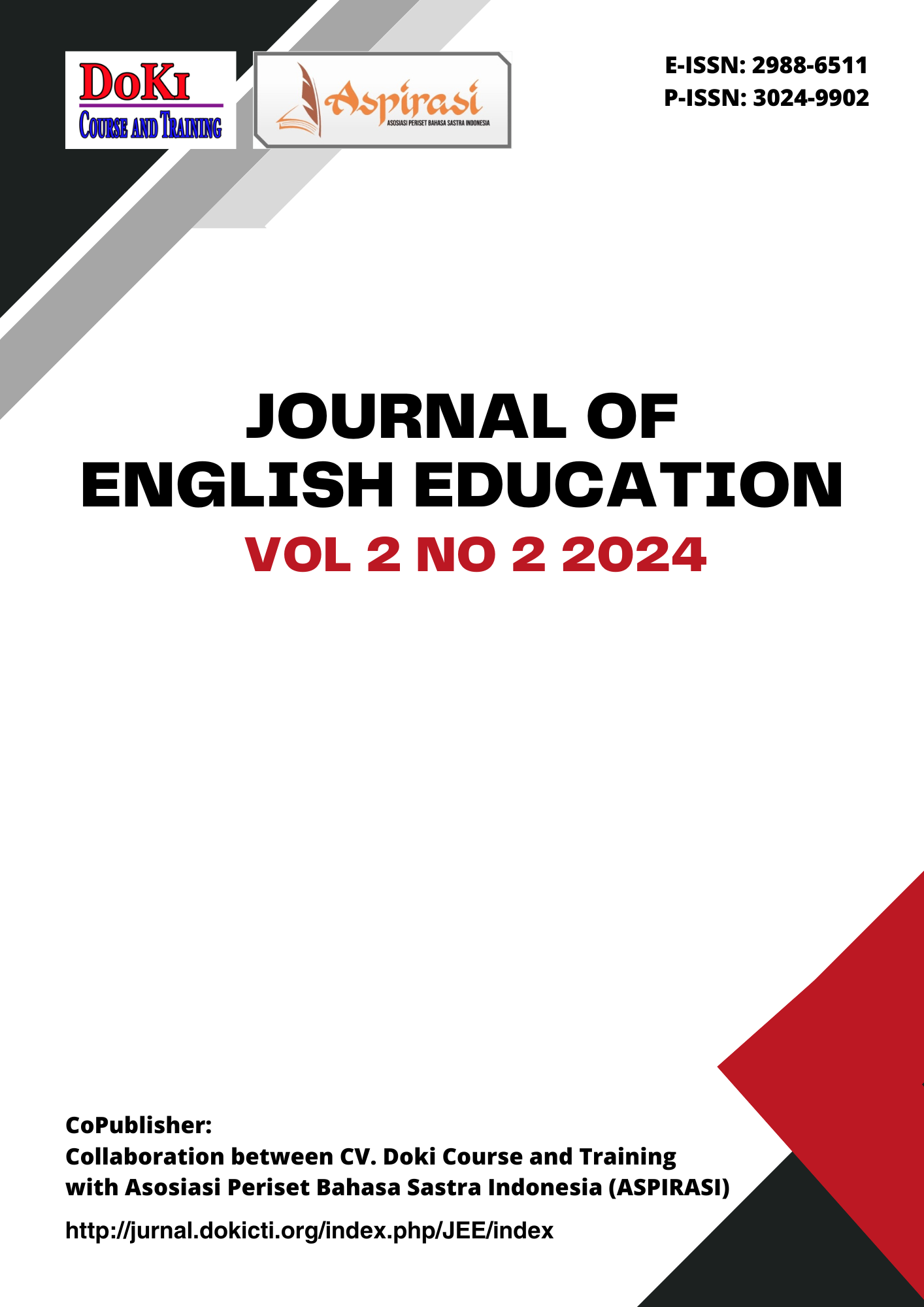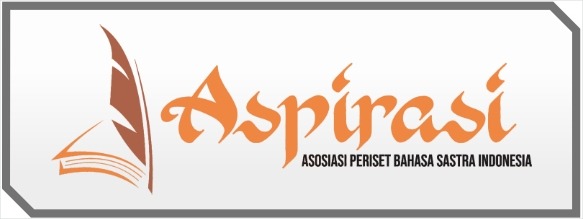Assessing English Proficiency of Management and Accounting Students Using Linguaskill Business Tests Aligned with CEFR Standards
DOI:
https://doi.org/10.61994/jee.v2i2.764Keywords:
English Proficiency, Linguaskill Business, CEFR StandardsAbstract
This study aims to analyze the English language proficiency of students in Management and Accounting programs using the Linguaskill Business test and the CEFR standards. The research sample consists of 10 undergraduate students from the Management program and 10 students from the Diploma program in Management. Data, represented by test scores, were collected through the Linguaskill Business assessment. Subsequently, the data were statistically analyzed to determine the minimum, maximum, mean scores, and frequency distribution. This data was then converted into a CEFR standard table for further analysis of English language proficiency according to CEFR criteria. The findings indicate that the majority of Management and Accounting students possess basic English language skills, primarily at or below the A1 level. Some students demonstrated relatively good proficiency at the A1, A2, and a maximum of B1 levels. Therefore, it is essential to enhance the English language skills of these students, as they have not yet reached the higher levels of B2 and C1.
References
Agustina, V., Thamrin, N. R., & Oktoma, E. (2024). The Role of English Language Proficiency in the Global Economy and Business Communication. International Journal Administration, Business & Organization, 5(4), 82–90. https://doi.org/10.61242/ijabo.24.423
Anhar, A., Gani, S. A., & Muslem, A. (2021). A survey of students’ English proficiency and their needs toward learning outcomes at vocational colleges. English Education Journal, 12(4), 631–641. https://doi.org/10.24815/eej.v12i4.19493
Arianti, A. (2021). A STUDY OF STUDENTS’ EFFORTS TO IMPROVE THE ABILITY IN ENGLISH. Surakarta English and Literature Journal, 4(1). https://doi.org/10.52429/selju.v4i1.581
Arifudin, F., & Maryo, A. (2021). The Issues of the Implementation of CEFR in Indonesia. Aplinesia: Journal of Applied Linguistics Indonesia, 05, 5. https://doi.org/10.30595/aplinesia.v5i1.12080
Asrifan, A., Hermansyah, S., Sadapotto, A., & Kamridah, N. (2023). THE NEEDS ANALYSIS OF ENGLISH FOR ACCOUNTING IN SMK NEGERI 2 SIDRAP. La Ogi : English Language Journal, 9(1), 24–34. https://doi.org/10.55678/loj.v9i1.836
Aswad, M., & Wirentake. (2023). CREATING INCLUSIVE LANGUAGE LEARNING ENVIRONMENTS: ADDRESSING THE NEEDS OF DIVERSE LEARNERS. TRANSFORMATIONAL LANGUAGE, LITERATURE, AND TECHNOLOGY OVERVIEW IN LEARNING, 2(3), 1–6. https://doi.org/10.55047/transtool.v2i3.1360
Budiman, Jaswadi, Rohani, Halil, & Slamet. (2023). Enhancing English Language Proficiency: Strategies for Improving Student Skills. JSRET (Journal of Scientific, 2(3), 2023. https://doi.org/10.58526/jsret.v2i3.205
Cheek, J., & Obey, E. (2023). Research Design Why Thinking About Design Matters. Sage Publications.
Dasadiya, K., & Sarvaiya, R. M. (2024). RESEARCH METHODOLOGY AND STATISTICS. KitabWritingPublishing.
Estisari, K., Tinggi, S., & Gentiaras, I. E. (2021). The Perception of Semester 4 Accounting Students on Learning English through Whatsapp Application. Journal of Research on Language Education (JoRLE), 2(2), 75–82. https://doi.org/10.33365/jorle.v2i2.1163
Kayyis, R., & Pratiwi, D. (2022). ENGLISH LEARNING NEEDS FOR THE MANAGEMENT DEPARTMENT. INOVISH JOURNAL, 7(1). https://doi.org/10.35314/inovish.v7i1.2264
Nuraeni. (2019, December 19). Problems Encountered by Learners and How to Deal with Them in Learning English as A Foreign Language. UICELL Conference Proceedings 2019. https://journal.uhamka.ac.id/index.php/uicell/article/view/4142
Putri, N. V. W., Munir, A., & Anam, S. (2021). Students’ perceptions of teacher feedback in EFL English class and their self-regulated learning after receiving feedback. Journal on English as a Foreign Language, 11(1), 42–60. https://doi.org/10.23971/jefl.v11i1.2237
Sukarni, S. (2020). UNDERSTANDING LEARNERS� NEED OF ESP FOR ACCOUNTANCY PROGRAM AT VOCATIONAL SCHOOL. English Review: Journal of English Education, 8(2), 109. https://doi.org/10.25134/erjee.v8i2.2002
Sumargo, B. (2020). Teknik Sampling. UNJ Press.
Suyadi, S. (2020). Students’ Voices on an English Material for Accounting Major At SMK Negeri 2 Kota Jambi. Jurnal Ilmiah Universitas Batanghari Jambi, 20(3), 761. https://doi.org/10.33087/jiubj.v20i3.1058
Wigati, F. A., Sari, R. P., Panji, M., & Santosa, T. (2020). INDUSTRIAL NEEDS ON ENGLISH SKILLS OF NEW EMPLOYEES: A SURVEY. Eltin Journal:Journal of English Language Teaching in Indonesia, 8(1). https://doi.org/10.22460/eltin.v8i1.p42-54
Winna, W., & Sabarun, S. (2023). The Language Assessment In Teaching-Learning English. DIAJAR: Jurnal Pendidikan Dan Pembelajaran, 2(4), 413–419. https://doi.org/10.54259/diajar.v2i4.1894
Downloads
Published
Issue
Section
License
Copyright (c) 2024 Ade Kristianus Kaloeti

This work is licensed under a Creative Commons Attribution-ShareAlike 4.0 International License.

Journal of English Education by https://jurnal.dokicti.org/index.php/JCSS/index
is licensed under a Creative Commons Attribution-ShareAlike 4.0 International Licensel
















